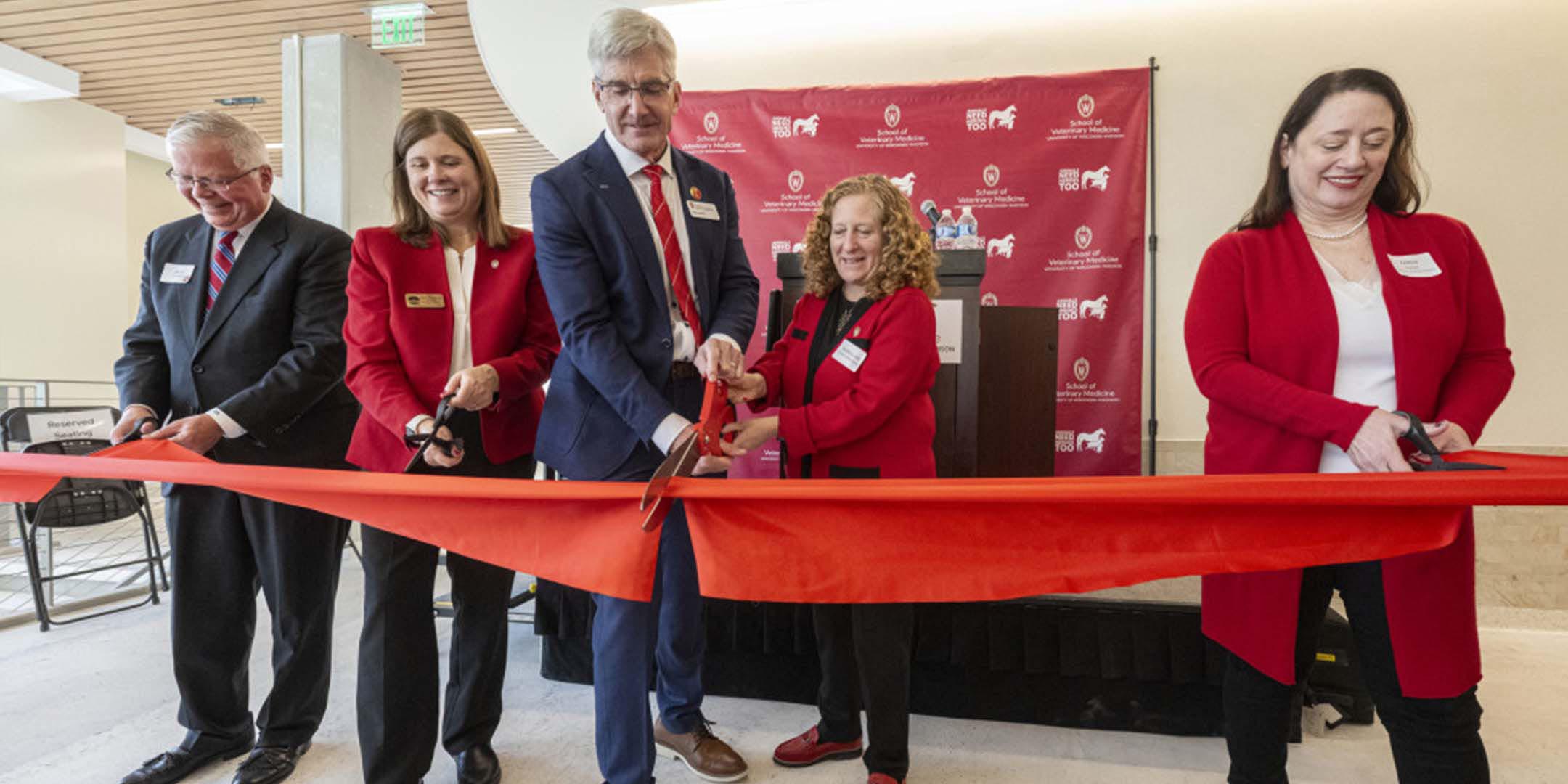
The UW School of Veterinary Medicine is a powerhouse for the University of Wisconsin–Madison, the Madison community, and the state. It is home to 75 percent of the vital infectious disease research conducted on campus, and it provides quality care for nearly 30,000 veterinary patients per year. With the support of state officials, project advocates, and dedicated donors, the school celebrated a monumental expansion with a ribbon-cutting ceremony on November 13, 2023. The newly constructed, three-story facility is connected to the school’s existing small-animal clinic and will provide much more than the aging infrastructure could.
“The University of Wisconsin School of Veterinary Medicine is consistently ranked in the top 10 among its peers around the country, and with good reason,” shares Jay Rothman, president of the Universities of Wisconsin. “I am very proud that Wisconsin recognized the need for a veterinary center like this. I am also proud that we recognized the powerful potential a center like this could offer, both to Wisconsin and the world.”
The updated space will greatly expand the school’s ability to meet the increasing demand for research and care that benefits animals as well as humans. Some of the improvements include important research and diagnostic equipment, such as CT, MRI, and PET-CT machines; room for more student learning spaces; and a state-of-the-art cardiology suite. The new facility will also house biosafety level 3 lab spaces, which are designed for easy decontamination because they are used for the study of potential airborne toxins. This is especially noteworthy because, according to the CDC, 75 percent of the rising infectious pathogens that affect humans originate in animals, and scientists at the school are on the front lines of investigating infectious diseases such as West Nile encephalitis, avian influenza, and COVID-19.
As with much of the progress happening across campus, none of this would be possible without the generosity of dedicated donors. The school received $90 million from the state for this $174 million project, with the remaining balance coming from a collective of contributions ranging from $5 to $15 million. Benefactors include current and former teaching hospital clients, alumni, organizations, pet lovers, and passionate individuals like Debbie Cervenka.
“The University of Wisconsin School of Veterinary Medicine has seen much success over the past 40-plus years,” shares Cervenka. “Today, we envision the impact the expanded space will have upon students, faculty, staff, and those they serve. Equally important is the effect that research will have on the health of our animals. To be involved and have the ability to provide financial support for this expansion has been a tremendous honor. A great team of people who believed we would succeed came together to make an idea a reality. All supporters and the state of Wisconsin should be proud.”
The new building’s first two floors will open in spring 2024, doubling the size of the small-animal hospital and tripling the area devoted to infectious disease research. The 150,000-square-foot construction will also offer student collaboration spaces, acupuncture, internal medicine, general surgery, a cancer center, an ultrasound suite, an MRI machine capable of accommodating large and small animals alike, and more. The third floor of the new building, an enclosed large-animal arena, remodeled isolation stalls for bovine and equine patients, and renovations to the existing building will likely be completed in early 2025.
“I can’t wait to see what the future holds for this incredible school,” says Chancellor Jennifer L. Mnookin, “the discoveries and innovations, the graduates who will meet the state’s urgent need for veterinarians, and the compassionate care that will change the lives of our animal patients as well as the lives of the humans who love them.”
